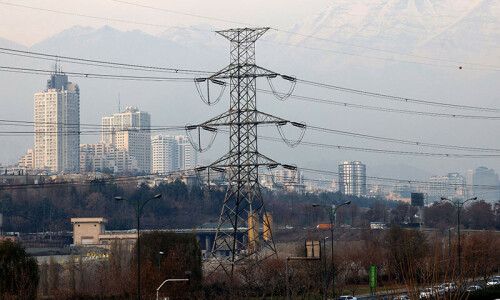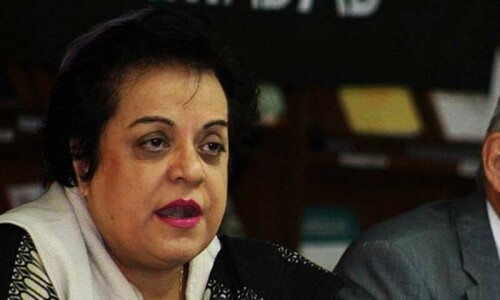BAGHDAD: Turkey’s incursion into northern Iraq — its second in three months — threatens to trigger regional turmoil and destabilise the only peaceful area in the country since the fall of Saddam Hussein.
Ankara launched a fresh military offensive on Thursday into northern Iraq’s mountainous region to flush out rebels from the Kurdistan Workers’ Party (PKK), which has been fighting for a self-rule in southeastern Turkey since 1984.
It is the second incursion confirmed by Turkey since October, when the government won parliamentary approval to unleash the military on PKK guerrillas based in Iraq.
Tension between Baghdad and Ankara rose after PKK rebels killed 12 Turkish soldiers in an ambush on Oct 21.
A similar Turkish incursion in December lasted a few days.
The White House said on Monday it hoped the incursion would be short-lived and not harm civilians, while Baghdad has urged Ankara to withdraw “as soon as possible,” saying the ground assault was an attack on Iraqi sovereignty.
Government spokesman Ali al-Dabbagh said that Baghdad acknowledged the threat the PKK posed to Turkey, but warned that the “operation should not destabilise Iraq and the region.” Neighbouring Iran and Syria also have significant populations of ethnic Kurds.
The Kurdish region in northern Iraq is the only area of the war-torn country to see some peace and prosperity since 2003, when US-led forces invaded to overthrow Saddam.
Arbil, Dohuk and Sulaimaniyah are the only Iraqi provinces where coalition forces do not patrol the streets in a bid to curb the bloodshed that has killed tens of thousands of Iraqis elsewhere.
The five million people who live in the rugged autonomous Kurdish region have enjoyed American protection since 1991, when Saddam’s troops were defeated in the Gulf War launched after Iraq invaded Kuwait.
Nechirvan Barzani, prime minister of northern Iraq’s administration, has called the Turkish military strikes a “disaster” for everyone except the PKK.
“We in the Kurdistan region of Iraq would be slowed on our path to peace, democracy and prosperity and the Turkish army would become bogged down in a bloody and unproductive struggle against the PKK outside its borders,” he said in December.
Barzani, himself a Kurd, said: “The United States and Western allies would become estranged from a vital Nato ally and the economies and peoples of the region — particularly Turkey, Syria, Iran and Iraq — would suffer.” Before the incursion Barzani proposed four-party talks between Ankara, Baghdad, Arbil and Washington to defuse the crisis.
“This is a trans-national issue, complicated by ethnic ties, and no party can find a solution on its own,” he said.
Ankara refuses to talk to Iraqi Kurds because it accuses them of harbouring the PKK rebels. It says an estimated 4,000 PKK rebels are holed up in northern Iraq and use it as a springboard for attacks on Turkey.
The conflict has claimed more than 37,000 lives since the PKK, listed as a terrorist group by Ankara and much of the international community, took up arms in 1984.
The incursion has left Washington caught between Ankara and Baghdad — two key allies — at a time when another key ally in the US “war on terror,” Islamabad, is engulfed in deep political crisis.
The latest Turkish military operation against the PKK comes at a time when Washington is claiming some success in its efforts to stabilise Iraq, a nation caught between a raging anti-American insurgency and brutal sectarian conflict.
Both US and Iraqi officials claim that violence in Baghdad and other volatile regions has been significantly reduced.
Iraqi government figures indicate that civilian deaths across the country in January fell to a 23-month low of 541, reflecting a continued downward trend of violent incidents since June.
The figure was down from 568 in December, 606 in November, 887 in October and 840 in September.
“There is progress but obviously the Americans do not want any other problem on hand when their military resources are stretched,” said Mahmud Othman, a Kurdish member of Iraq’s parliament.
The US military has deployed about 160,000 troops to fight anti-American insurgents led by Al Qaeda in Iraq and to rein in the sectarian bloodshed by targeting militants.
Operations are underway in Baghdad, Diyala, Nineveh, Kirkuk and Salaheddin provinces against Al Qaeda.—AFP















































Dear visitor, the comments section is undergoing an overhaul and will return soon.